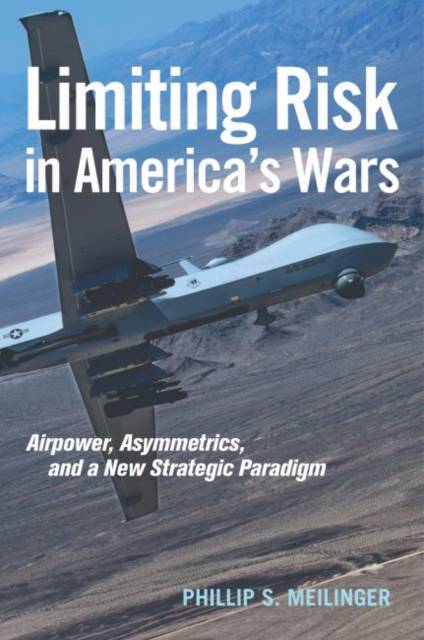
- Afhalen na 1 uur in een winkel met voorraad
- Gratis thuislevering in België vanaf € 30
- Ruim aanbod met 7 miljoen producten
- Afhalen na 1 uur in een winkel met voorraad
- Gratis thuislevering in België vanaf € 30
- Ruim aanbod met 7 miljoen producten
Zoeken
Limiting Risk in America's Wars
Airpower, Asymmetrics, and a New Strategic Paradigm
Phillip S Meilinger
€ 47,45
+ 94 punten
Omschrijving
The United States has the most expensive and seemingly unstoppable military in the world. Yet, since World War II the nation's military success rate has been meager. The Korean War was a draw, while Vietnam, Mogadishu, Afghanistan, and Iraq were clear losses. Successes include Iraq in 1991, the Balkans (Croatia and Kosovo), Panama, the initial takedowns of Afghanistan in 2001 and Iraq in 2003, and Libya. What differentiates the failures from the successes? Failures have been marked by the introduction of large numbers of conventional American ground troops, while successes have been characterized by the use of airpower, special operations forces, robust intelligence and sensor platforms, and the use of indigenous ground troops. Phillip S. Meilinger's new book advocates strategies that limit risks in war as well as achieve measurable goals. Instead of large numbers of conventional ground troops, the author argues in favor of a focus on asymmetric capabilities-a combination of airpower, special operation forces, intelligence, and indigenous ground troops-to achieve the desired political outcomes.
Specificaties
Betrokkenen
- Auteur(s):
- Uitgeverij:
Inhoud
- Aantal bladzijden:
- 304
- Taal:
- Engels
- Reeks:
Eigenschappen
- Productcode (EAN):
- 9781682472507
- Verschijningsdatum:
- 15/11/2017
- Uitvoering:
- Hardcover
- Formaat:
- Genaaid
- Afmetingen:
- 155 mm x 231 mm
- Gewicht:
- 621 g

Alleen bij Standaard Boekhandel
+ 94 punten op je klantenkaart van Standaard Boekhandel
Beoordelingen
We publiceren alleen reviews die voldoen aan de voorwaarden voor reviews. Bekijk onze voorwaarden voor reviews.











